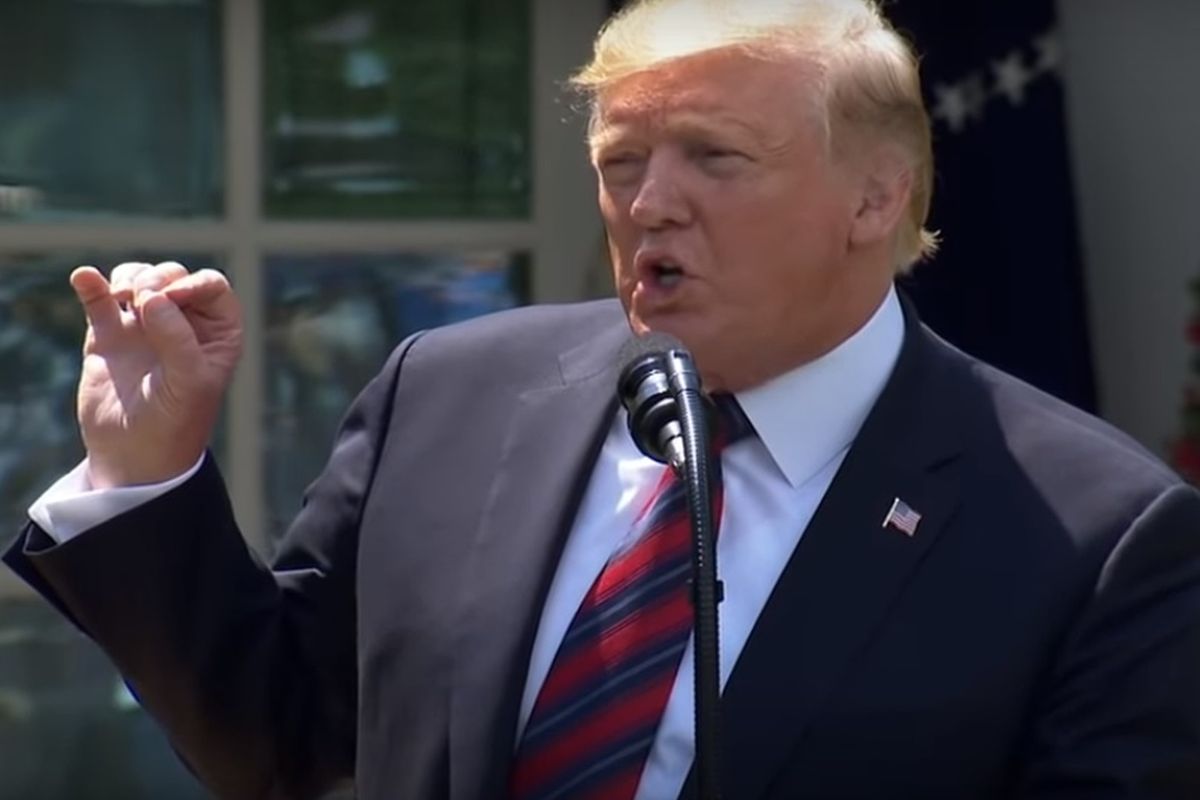The trade war that Donald Trump has initiated with China by imposing massive tariffs on the Chinese products has upset one of his core support bases, the influential church community, that fears the US President’s import duties would increase the cost of the Bible in America.
The US and China have been locked in a bruising trade war since Trump imposed heavy tariffs on imported steel and aluminium items from China in March last year, a move that sparked fears of a global trade war.
Advertisement
Trump has already imposed 25 per cent tariffs on USD 250 billion in Chinese imports and China has retaliated with tariffs on US goods.
In response, China imposed tit-for-tat tariffs on billions of dollars worth of American imports.
The church community is up in arm against President Trump as his import duties on Chinese products will increase in the United States the cost of the Holy Bible, which is significantly imported from China.
According to Congressman Josh Harder, more than half of the Bibles produced in the world originate from China.
“The recently proposed tariffs on an additional USD 300 billion in Chinese goods, including printed materials, could have significant negative effects on our religious groups, churches, schools, ministries, and nonprofit organisations,” Harder said.
“More than half of the Bibles printed in the world originate in China due to the unique paper and technologies required,” he said.
Unless the Bibles are excluded from the tariffs, churches, religious schools and other organisations would be forced to pay more for the scripture, he said.
“I don”t think the president planned to add an extra tax on Bibles, but that”s the practical effect these tariffs would have, and that would make connecting with scripture more difficult for our Christian communities,” Harder said.
“We need all of these trade wars to end, but in the meantime, we can’t allow our congregations to become collateral damage,” he added after he wrote a letter to Trump.
The Congressman urged the President to exempt the Bibles printed in China from import duty.
In the letter dated June 25, the Congressman from California expressed his concern regarding tariffs on printed books which would amount to a “Bible tax”.
If printed books, including the Bibles, are not removed from the list of products that could be impacted by tariffs, consumers and religious groups will be forced to pay higher prices for their Bibles, Harder said.
“While I do not believe this was an intended policy aim, the outcome would be harmful to our religious communities who rely on these sacred texts. I respectfully request that you reconsider the proposed tariffs for books and Bibles,” the Congressman said.
Christian publishers and Bibles societies in the US depend on the capacity and expertise of printers in China to help supply the 20 million Bibles bought each year by Americans, said Stan Jantz, president of the Evangelical Christian Publishers Association.
“A Bible tax would mean fewer Bibles at much higher prices would be available to people who depend on the Bible for their daily spiritual nourishment,” Jantz said.
A 25 per cent tariff imposed on Bibles would cause a hardship for many publishers, Jantz said.
“There will be significant damage to Bible accessibility if Bibles and books are not excluded from the tariffs. Some believe such a tariff would place a practical limitation on religious freedom. For sure we know that competitive options for printing Bibles outside of China are limited, especially if the current average price of a Bible is to be maintained,” he said.
According to Mark Schoenwald, president of HarperCollins Christian Publishing, the Trump administration was unaware of the potential negative impact these proposed tariffs would have on the publishing industry generally, and that it never intended to impose a “Bible Tax” on consumers and religious organisations.
HarperCollins owns Thomas Nelson and Zondervan, two of the largest Bible producers in the United States.
“If printed books, including the Bibles, are not removed from the fourth list of products from China to be subject to tariffs and the tariffs go into effect, publishers will reduce investment in their businesses, consumers and religious organisations will face higher prices, and churches, schools, ministries, and nonprofit organisations will have fewer resources to educate others and connect them with the Holy Bible,” Schoenwald said in a statement.
One of the most critical issues facing the book publishing industry is the strong possibility that a tariff of up to 25 per cent will be placed on goods imported from China, including books and the Bibles.
As such Evangelical Christian Publishers Association (ECPA) has expressed its concerns to the United States Trade Representative (USTR).
Books and the Bibles should be exempted from the Chinese tariff, he argued in testimony before the USTR this week.
Schoenwald and ECPA board member Paul Hendrickson, general manager of Hendrickson Publishers also gave testimonies.
The ECPA said a large number of Bibles – well over 50 per cent – were printed in China.
While there are some domestic Bible options available, the US printers comparable to China on price and quality do not have the capacity to meet the current demand. The same can be said for four-colour books printed in China.











